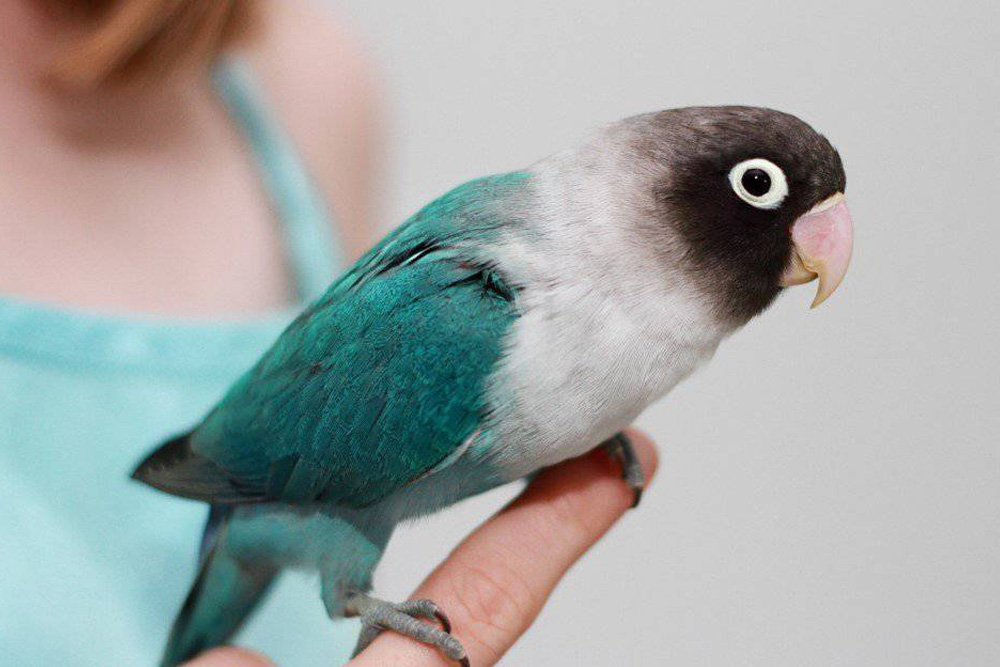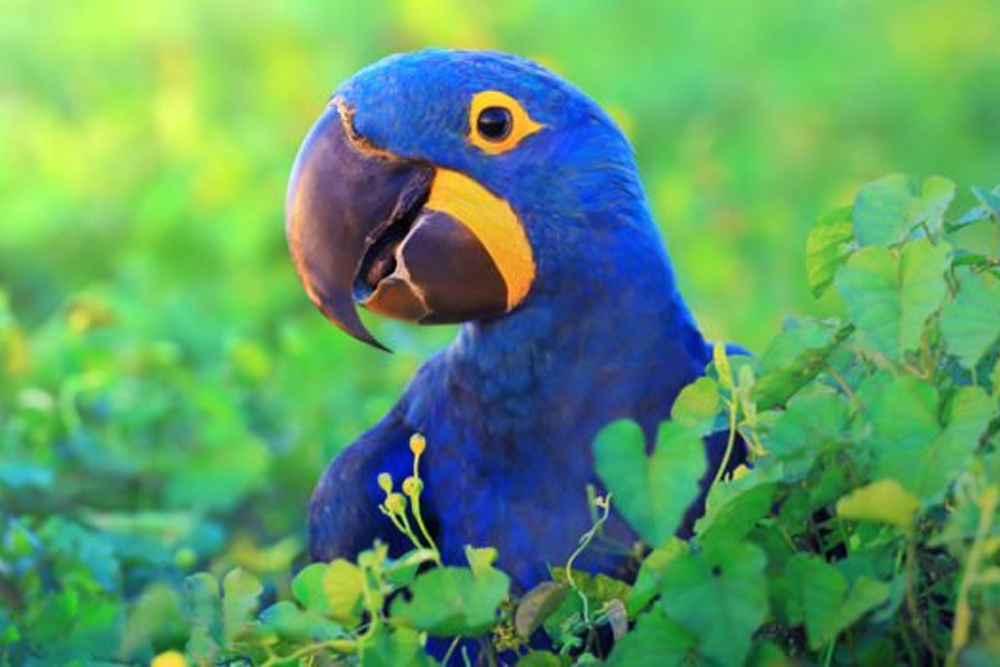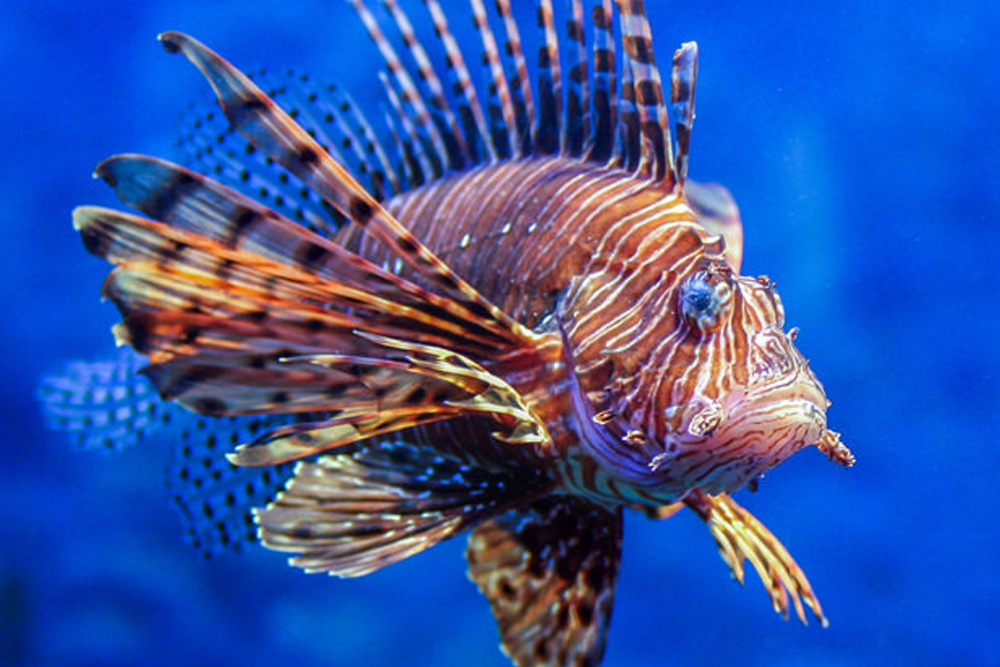The Fascinating World of Exotic Birds and Their Care

Exotic birds are a diverse group of species that come in a wide range of colors, shapes, and sizes. From the colorful parrots of South America to the majestic macaws of Africa, exotic birds are known for their beauty and intelligence. Many people are fascinated by these creatures and enjoy keeping them as pets or observing them in their natural habitats.
Caring for exotic birds can be a rewarding experience, but it also requires a great deal of knowledge and dedication. These birds have specific needs when it comes to diet, housing, and socialization. Providing proper care for exotic birds is essential to ensure their health and well-being.
Related articles
1- Treat Your Pet Like Family: 10 Fun Activities to Do Together
2- Keep Your Pet Healthy and Happy with Regular Veterinary Check-ups
3- How to Keep Your Pets Mind Sharp with Unique Games and Foods!
4- From Fat to Fit: Home Exercises for Your Obese Pet
Some popular types of exotic bird include budgerigars, lovebirds, parrots, pigeons, toucans, macaws, albatrosses, kingfishers, owls, cockatoos, swans, quails, hummingbirds, chickens, sandgrouse, geese, sparrowhawks, falcons, flycatchers, ducks and partridges ¹. Each species has its own unique characteristics and care requirements.
When it comes to caring for exotic bird, diet is one of the most important factors to consider. These bird have specific dietary needs that must be met in order to ensure their health and well-being. In general, exotic birds require a diet that is rich in nutrients and provides a balance of protein, carbohydrates, and fat.
In addition to a balanced diet, exotic birds also need access to fresh water at all times. Many species enjoy bathing and will appreciate a shallow dish of water for this purpose. Providing fresh fruits and vegetables can also be a good way to supplement their diet and provide additional nutrients.
Housing is another important factor to consider when caring for exotic birds. These birds need spacious cages that provide plenty of room for them to move around and exercise. The cage should also be equipped with perches, toys, and other enrichment items to keep the bird mentally stimulated.
Socialization is also important for the well-being of exotic birds. Many species are highly social and enjoy interacting with their owners and other birds. Providing opportunities for socialization can help prevent boredom and behavioral problems.
Exotic birds are known for their beauty and intelligence. These fascinating creatures come in a wide range of colors, shapes, and sizes, and each species has its own unique characteristics.
When it comes to caring for exotic birds, it is important to understand their specific needs and provide for them accordingly. Some of the key factors to consider when caring for exotic birds include diet, housing, and socialization.
Diet is one of the most important factors to consider when caring for exotic birds. These birds have specific dietary needs that must be met in order to ensure their health and well-being. In general, exotic birds require a diet that is rich in nutrients and provides a balance of protein, carbohydrates, and fat.
Housing is another important factor to consider when caring for exotic birds. These birds need spacious cages that provide plenty of room for them to move around and exercise. The cage should also be equipped with perches, toys, and other enrichment items to keep the bird mentally stimulated.
Socialization is also important for the well-being of exotic bird. Many species are highly social and enjoy interacting with their owners and other birds. Providing opportunities for socialization can help prevent boredom and behavioral problems.
There are many advantages to keeping birds as pets. Some of the benefits of having a pet bird include:
- Companionship: Birds are social creatures and can provide their owners with companionship and entertainment. Many species are highly intelligent and enjoy interacting with their owners.
- Beauty: Birds come in a wide range of colors, shapes, and sizes, and their beauty can be a source of joy for their owners. Watching a bird preen its feathers or listening to its song can be a relaxing and enjoyable experience.
- Low maintenance: Compared to other pets such as dogs or cats, birds are relatively low maintenance. They do not require daily walks or grooming, and their cages can be easily cleaned.
- Long lifespan: Many species of birds have long lifespans, with some living for several decades. This means that a pet bird can provide its owner with many years of companionship.
- Educational: Keeping a pet bird can be an educational experience for both children and adults. By caring for a bird, individuals can learn about its behavior, diet, and habitat, and gain a greater appreciation for the natural world.
Keeping a pet bird can provide many benefits, including companionship, beauty, low maintenance, a long lifespan, and educational opportunities.
Caring for a pet bird requires knowledge and dedication. These fascinating creatures have specific needs when it comes to diet, housing, and healthcare. By providing proper care for your pet bird, you can ensure its health and well-being.
Diet is one of the most important factors to consider when caring for a pet bird. These bird have specific dietary needs that must be met in order to ensure their health and well-being. In general, pet birds require a diet that is rich in nutrients and provides a balance of protein, carbohydrates, and fat. Providing fresh fruits and vegetables can also be a good way to supplement their diet and provide additional nutrients.
Housing is another important factor to consider when caring for a pet bird. These birds need spacious cages that provide plenty of room for them to move around and exercise. The cage should also be equipped with perches, toys, and other enrichment items to keep the bird mentally stimulated.
Pet birds are also susceptible to a variety of diseases and health problems. Regular veterinary check-ups are important to ensure that your bird stays healthy. If you notice any changes in your bird’s behavior or appearance, it is important to consult with a veterinarian as soon as possible.
In conclusion, keeping a pet bird can be a rewarding experience that offers many benefits. These fascinating creatures are known for their beauty and intelligence, and can provide their owners with companionship and entertainment. However, caring for a pet bird also requires knowledge and dedication. By providing proper care for your pet bird, including a balanced diet, spacious housing, and regular veterinary care, you can ensure its health and well-being. Thank you for taking the time to learn about the care of pet birds.
Sobre o Autor




0 Comentários